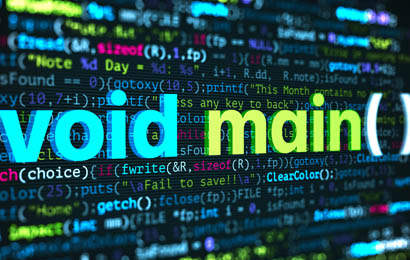- (5.0 Star)
Programming in C
Certification Training
We provide Online Instructor And Classroom Instructor led Live virtual classroom by certified trainers/ industry professionals
- Get Up to 35% discount
About Course
The term programming logic has its roots in the advancement of computer science. Programming logic started only with ‘hard and fast logic’ compiled into sophisticated algorithms and expressed in programming languages like Prolog. Basic computers developed ways to deal with numbers and logical states, applying specific operators that lead to precise results.
C is a high-level and general purpose programming language that is ideal for developing firmware or portable applications. Originally intended for writing system software, C was developed at Bell Labs by Dennis Ritchie for the Unix Operating System (OS) in the early 1970s. C is a structured, procedural programming language that has been widely used both for operating systems and applications and that has had a wide following in the academic community. Many versions of UNIX-based operating systems are written in C. C has been standardized as part of the Portable Operating System Interface (POSIX). C Program Components
Key Features
You will get 100% job Assurance and life time e-placement support
classed taken by globally certified trainers
You will get 3 year Dedicated placement support
Courses are globally recognized & accredited

Course Type:
Certification Training
Live virtual classroom:
3,999/-
4,999 /-
Regular classroom:
3,999/-
4,999/-
- Duration:
20 Hrs
- Enrolled:
89 Learners
- Eligibility:
Fresher 10th/10+2/Graduate
- 5 Star:
15 Reviews
Programming In C Course Curriculum
SEMESTER- I
Duration : 20 Hrs. Eligibility : Fresher 10th/10+2/Graduate
OVERVIEW OF PHP
- Introduction to Programming Concepts
- Declarative Computation Model
- Declarative Programming Techniques
- Declarative Concurrency
- Message-Passing Concurrency
- Explicit State
- Object-Oriented Programming
- Shared-State Concurrency
- Relational Programming
- Graphical User Interface Programming
- Distributed Programming
- Constraint Programming
C is a high-level and general purpose programming language that is ideal for developing firmware or portable applications. Originally intended for writing system software, C was developed at Bell Labs by Dennis Ritchie for the Unix Operating System (OS) in the early 1970s. C is a structured, procedural programming language that has been widely used both for operating systems and applications and that has had a wide following in the academic community. Many versions of UNIX-based operating systems are written in C. C has been standardized as part of the Portable Operating System Interface (POSIX). C Program Components
Duration : 20 Hrs. Eligibility : Fresher 10th/10+2/Graduate
- Functions
- Statements
- File inclusion
- Input and Output
- Keywords
- Variables
- Operators
DATA AND OPERATORS
- Identifiers
- Fundamental data types and their operators
- Constants
- Operator precedence
- Conversions
- Casting
- Scope
CONTROL FLOW
- Boolean operators
- Conditional selection
- Iteration
FUNCTIONS
- Functional modularity
- Passing data in and out of functions
- Pass by value and reference
- Member functions
ARRAYS
- Defining arrays and access through subscripting
- Passing arrays to functions
- Strings in C
STRUCTURES AND UNION
- Data structures
- Aggregation
- Enumerations
THE PREPROCESSOR
- Using the preprocessor to create symbolic constants and macros
- Using conditional compilation techniques
POINTERS
- Concept of indirection
- Null pointers
- Using pointers with functions and arrays
- Pointer arithmetic
POINTERS AND ARRAYS
- The relationship between pointers and arrays
- Using pointer arithmetic to index arrays
POINTERS AND STRUCTURES
- Using pointers with structures and introducing the structure pointer
- operator
- Passing structures to functions
DYNAMIC MEMORY
- Accessing the heap or freestore with malloc and free
- Creating dynamic arrays
FILE I/O
- Working with the standard library file input and output routines
THE STANDARD LIBRARY
- Introducing other features of the standard library
- Sorting and searching
- Printing and scanning strings
- Time and data handling
- International code
LARGER PROGRAMS
- How to construct larger programs and handle the coupling between
- modules
ADVANCED FEATURES
- Overview of some advanced features
- Bit manipulation
- Unions & Enum
Sent Us a Message



